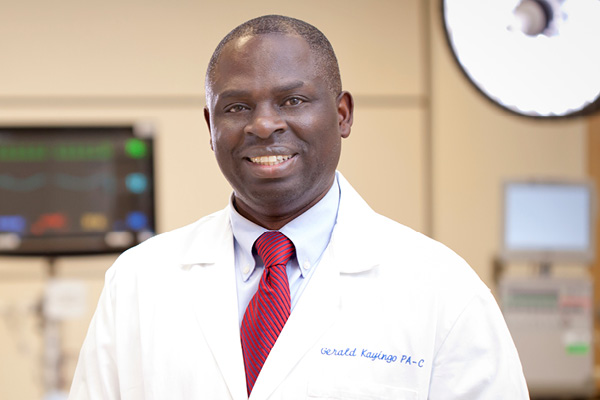
Filling an education void through leadership, mentoring
While pursuing his physician assistant degree at Yale University School of Medicine, Gerald Kayingo noticed physician assistant students learned in a vacuum and rarely with other health professions. He dreams of a future where students learn together, long before they’re clinicians working together.
Kayingo sought to develop a new cadre of faculty and a new generation of physician assistants equipped with the right attitudes, skills and diverse backgrounds to lead the interprofessional training movement at the Betty Irene Moore School of Nursing at UC Davis.
“Health education of the 21st century is far beyond taking a health history or physical exams; it requires students learn more about teamwork, leadership, policy advocacy, care coordination, quality and safety, and think about health as a global phenomenon,” explains Kayingo, an assistant clinical professor and director of the physician assistant program.
Kayingo serves on the editorial board for the Journal of Physician Assistant Education and is a fellow of the Uganda National Academy of Sciences. In 2016, he was awarded a prestigious fellowship by the Carnegie African Diaspora Fellowship Program to travel to his native Uganda to improve lung health.
“We are preparing students to be leaders in their clinics and advocates for policy change,” Kayingo adds. “We are on the frontlines of change.”

